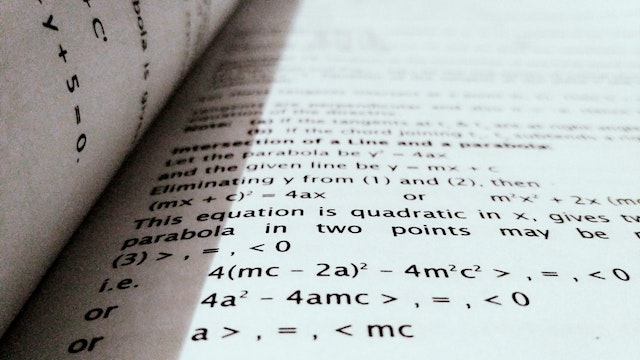The IB Math HL curriculum is divided into four main areas: algebra, functions, and equations; calculus; statistics and probability; and geometry and trigonometry. Each of these areas includes a variety of topics that are covered in-depth, and students are expected to have a thorough understanding of the material in order to succeed in the course.
In addition to covering advanced mathematical concepts, the IB Math HL course also places a strong emphasis on problem-solving and critical thinking. Students are required to apply their knowledge to solve real-world problems, and they are expected to be able to think critically and make connections between different concepts.
The course is assessed through both internal and external assessments. The internal assessment is a mathematical exploration, which is a written report on a topic chosen by the student and it represents 20% of the final grade. The external assessment is a 2-part examination, which accounts for the remaining 80% of the final grade. The first part of the exam is a multiple-choice section, while the second part is a free-response section.
Learning International Baccalaureate (IB) Math Higher Level (HL) is a challenging task that requires a deep understanding of mathematical concepts and the ability to apply them to solve complex problems. However, with the right approach, it is possible to master this subject and achieve success in the course.
Improving your math skills can seem like a daunting task, but with the right strategies and mindset, it is possible to make significant progress. Whether you’re a student looking to excel in your math classes or an adult looking to refresh your skills, there are several strategies you can use to improve your math abilities.
Mastering the International Baccalaureate (IB) Math Higher Level (HL) course requires a combination of strong mathematical foundations, effective study habits, and a willingness to seek help when needed. There are several strategies that students can use to improve their math skills and achieve success in this challenging course.
One important strategy is to establish a regular study schedule. Consistency is key when it comes to mastering mathematical concepts, and setting aside dedicated time each day or week to study can help students to stay on track and make steady progress. Additionally, breaking down the material into manageable chunks and focusing on one concept at a time can help you avoid feeling overwhelmed.
Another effective strategy is to actively engage with the material. Instead of simply reading the textbook or taking notes, students should work through practice problems and try to solve them on their own before looking at the solutions. This will help to build a deeper understanding of the concepts and improve problem-solving skills.
Seeking extra help when needed is also crucial, whether it be from teachers, tutors, or peers. Collaborative learning and peer support can also be beneficial in helping students to understand difficult concepts and solve problems. Teachers can provide guidance and support and peers can help to explain the material in a way that makes sense to individual students.
Additionally, staying organized and keeping track of progress are also important. Keeping track of progress allows students to identify areas where they may need to spend more time studying and also to celebrate their accomplishments as they progress.
Furthermore, using real-world examples to make connections and to understand the material better is also a good strategy. By relating the material to real-world scenarios, students will be able to understand the material better and thus be able to solve the problems more effectively.
Finally, it’s important to have a growth mindset and be open to making mistakes. Mistakes are a natural part of the learning process, and by viewing them as opportunities for growth, you will be more motivated to learn from them and improve your performance.
Studying is a vital component of academic success, and there are several strategies that students can use to improve their performance and achieve their goals. Whether you’re a student in primary school, high school, or college, these strategies can help you to make the most of your study time and reach your full potential.
In conclusion
Improving math skills for the IB Math HL course requires dedication, consistency, effective study habits, and a willingness to seek help when needed. By establishing a regular study schedule, actively engaging with the material, seeking extra help when needed, staying organized, and using real-world examples to make connections, students can improve their math skills and achieve success in this challenging course.
Despite the difficulties, studying IB Math HL can be incredibly fulfilling for students who are passionate about mathematics and enjoy tackling complex problems. IB Math HL course also provides students with a sense of accomplishment and pride. The course is challenging and requires a significant amount of effort and dedication, but when students successfully complete the course, they can feel a sense of satisfaction and pride in their achievements.














